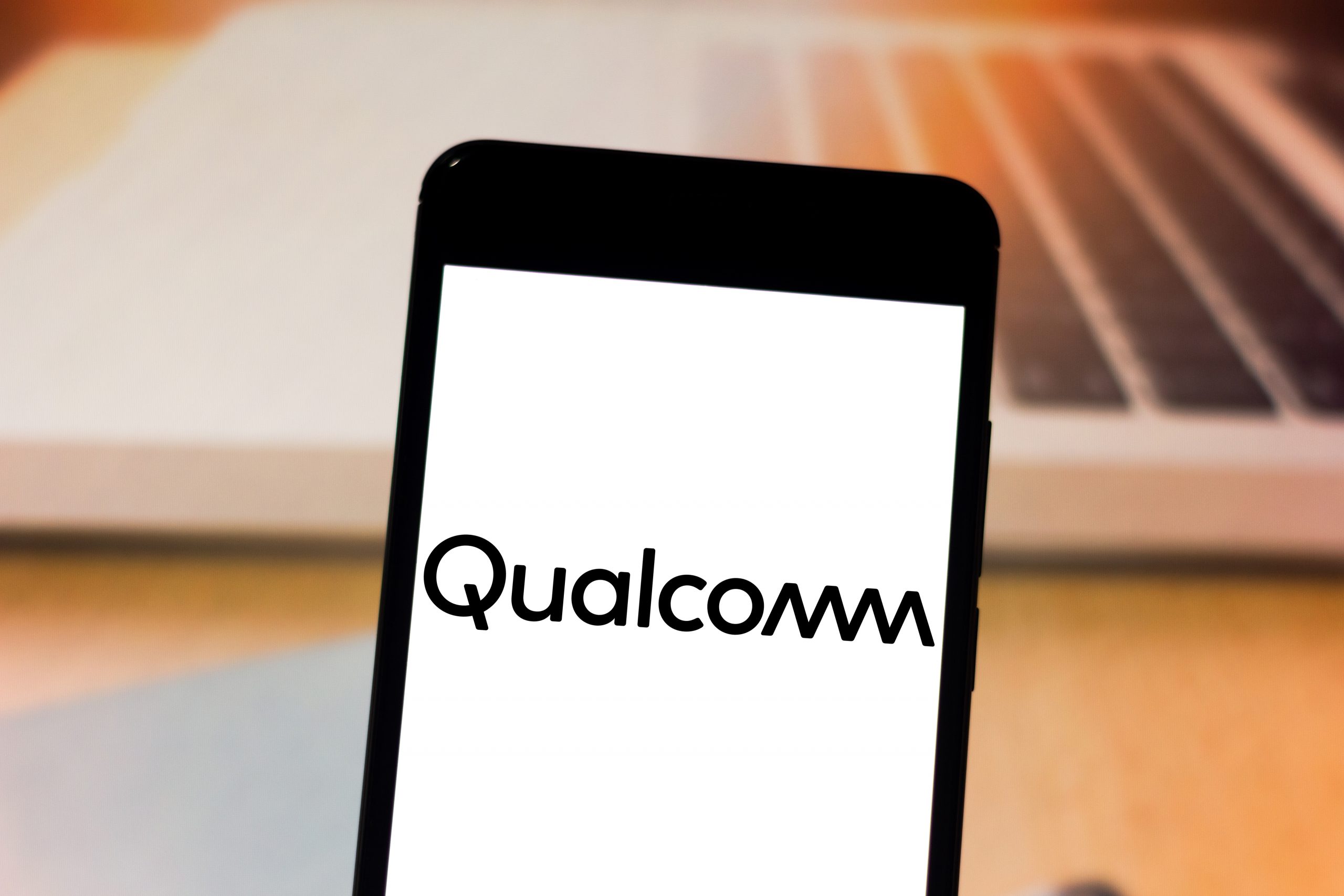“Qualcomm acquired [its] market position through ingenuity and business acumen. The Court held that certain features of Qualcomm’s business model violate the Sherman Act by anti-competitively maintaining those monopolies. That ruling departed from the FTC’s theory at trial and the Department of Justice has condemned it.” – Qualcomm opening brief
 The U.S. Court of Appeals for the Ninth Circuit is set to hear oral arguments tomorrow in the closely-watched case of FTC v. Qualcomm (N.D. Cal. May 21, 2019), which will review the issue of whether Qualcomm is required to license its standard essential patents (SEPs) to modem-chip suppliers, after the district court determined that the company’s “no license, no chips” policy violated U.S. antitrust law.
The U.S. Court of Appeals for the Ninth Circuit is set to hear oral arguments tomorrow in the closely-watched case of FTC v. Qualcomm (N.D. Cal. May 21, 2019), which will review the issue of whether Qualcomm is required to license its standard essential patents (SEPs) to modem-chip suppliers, after the district court determined that the company’s “no license, no chips” policy violated U.S. antitrust law.
In May 2019, Judge Lucy Koh of the U.S. District Court for the Northern District of California issued a 233-page order finding that Qualcomm had engaged in unlawful licensing practices and ordered in part that Qualcomm “must make exhaustive SEP licenses available to modem-chip suppliers on fair, reasonable, and non-discriminatory (“FRAND”) terms and to submit, as necessary, to arbitral or judicial dispute resolution to determine such terms…[and] submit to compliance and monitoring procedures for a period of seven (7) years.”
In August, the U.S. Court of Appeals for the Ninth Circuit issued a partial stay of Koh’s ruling and more than a dozen amicus briefs have been filed, most in support of Qualcomm or its arguments. As Professor Kristen Osenga explained for IPWatchdog in September, Judge Paul Michel’s amicus brief argues that the “smallest salable patent-practicing unit (SSPPU) concept” was not properly applied by the district court, which “acted as though SSPPU was mandated.” Michel also argued there are errors in the district court’s analysis of the reasonable royalty calculation and overall concerning potential effects on patent and antitrust law if the decision is affirmed.
Judge Douglas Ginsburg of the U.S. Court of Appeals for the D.C. Circuit also condemned the decision in a paper co-authored with former FTC Commissioner Joshua Wright, and attorney Lindsey Edwards of Wilson Sonsini Goodrich & Rosati. In their paper, “Section 2 Mangled: FTC v. Qualcomm on the Duty to Deal, Price Squeezes, and Exclusive Dealing,” the authors characterize the decision as being a part of “the misguided trend of using antitrust law to intervene in contract disputes between sophisticated parties negotiating over intellectual property rights.” Ginsburg et al cite three glaring errors made by Koh that demand reversal.
The U.S. Department of Justice notably filed a statement of interest in the case that departs from the Federal Trade Commission’s (FTC’s) views. Even within the FTC, some of the commissioners have come out against the Commission’s decision to pursue the case. At the IPWatchdog Patent Masters Symposium in September, FTC Commissioner Christine Wilson told attendees that Koh’s decision “scares me” as it “radically expands a company’s legal obligation to help its competitors.” She explained:
In the Qualcomm case, the district court said that Qualcomm had a duty to license its IP to chipmaking rivals even though Qualcomm didn’t have a preexisting, voluntary, and profitable course of dealing with them, expanding the scope of Aspen Skiing. By this logic, Aspen Skiing now means that if a company ever sells any product to any competitor then it could have a perpetual obligation to sell every product to every competitor.
In Qualcomm’s 167-page opening brief to the Ninth Circuit, it argues that the company “acquired [its] market position through ingenuity and business acumen. The Court held that certain features of Qualcomm’s business model violate the Sherman Act by anti-competitively maintaining those monopolies. That ruling departed from the FTC’s theory at trial and the Department of Justice has condemned it.”
The brief goes on to argue that the district court’s three bases for its findings conflict with both Supreme Court and Ninth Circuit precedent. Namely, the court did not prove that Qualcomm has a duty to grant exhaustive licenses to rival chipmakers under the precedent; that it “violated well-established law in deeming Qualcomm’s royalties to be unreasonable”; and that the court’s finding that “discounts on chip prices are de facto unlawful exclusive dealing arrangements….ignored settled liability standards.”
Here are the issues under consideration tomorrow, according to Qualcomm’s brief:
- Did the District Court err in holding that Qualcomm is subject to an antitrust duty to deal that requires Qualcomm to provide its chip manufacturing rivals with exhaustive licenses to Qualcomm’s standard essential patents?
- Did the District Court err in holding that Qualcomm’s patent licenses to original equipment manufacturers are anti-competitive because they impose an “unreasonable” “surcharge” on the chips sold by Qualcomm’s rivals and thereby substantially foreclose competition in certain chip markets?
- Did the District Court err in holding that volume discounts that Qualcomm offered to chip customers were anti-competitive exclusive dealing arrangements?
- Should this Court vacate all or portions of the District Court’s injunction?
- Did the District Court err in granting summary judgment that Qualcomm’s commitments to two standards development organizations require Qualcomm to provide chip manufacturers with exhaustive licenses to Qualcomm’s standard essential patents?
The FTC’s 131-page brief, on the other hand, frames the case as hinging on “Qualcomm’s long-running suppression of competition in the global markets for modem chips, the semiconductors that cellphones and a growing array of other products use to connect to cellular networks.” The brief continues:
[Qualcomm] uses its monopoly to require customers to pay Qualcomm even when they deal with its rivals. Under its declared “no-license, no-chips” policy, Qualcomm will not sell chips to a cellphone original equipment manufacturer (OEM) like Apple or Samsung unless the OEM agrees to a license that requires it to pay a substantial per-phone surcharge even on phones that use rivals’ chips.
Judge Koh’s decision in the district court came even after Apple and Qualcomm had entered into a peace treaty just three weeks before. “The revelations about Apple’s coordinated efforts to manipulate the licensing market by shrewdly challenging inferior patents to beat down prices should have led to the FTC dropping its pursuit of Qualcomm,” wrote IPWatchdog Founder and CEO Gene Quinn at the time.
Tomorrow’s argument will include the Department of Justice, after it was granted permission to participate in January.
According to Law.com, the judges who will hear the arguments are Consuelo Callahan, Johnnie Rawlinson, and visiting Judge Stephen Murphy III of the Eastern District of Michigan.
Tune in here to watch the oral argument live tomorrow, Thursday, February 13. There are two arguments scheduled before FTC v. Qualcomm, beginning at 9:30am PT.
Image Source: Deposit Photos
Photography ID: 263907752
Copyright: rafapress

![[IPWatchdog Logo]](https://ipwatchdog.com/wp-content/themes/IPWatchdog%20-%202023/assets/images/temp/logo-small@2x.png)

![[[Advertisement]]](https://ipwatchdog.com/wp-content/uploads/2024/05/Patent-Portfolio-Management-2024-banner-super-early-bird-with-button-1500x500-1.jpg)
![[Advertisement]](https://ipwatchdog.com/wp-content/uploads/2024/05/Quartz-IP-May-9-2024-sidebar-700x500-1.jpg)
![[Advertisement]](https://ipwatchdog.com/wp-content/uploads/2024/04/Patent-Litigation-Masters-2024-sidebar-last-chance-700x500-1.jpg)
![[Advertisement]](https://ipwatchdog.com/wp-content/uploads/2024/05/Patent-Portfolio-Management-2024-sidebar-super-early-bird-with-button-700x500-1.jpg)
![[Advertisement]](https://ipwatchdog.com/wp-content/uploads/2024/05/Artificial-Intelligence-2024-Getting-AI-Patents-Allowed-sidebar-700x500-1.jpeg)

![[Advertisement]](https://ipwatchdog.com/wp-content/uploads/2021/12/WEBINAR-336-x-280-px.png)
![[Advertisement]](https://ipwatchdog.com/wp-content/uploads/2021/12/2021-Patent-Practice-on-Demand-recorded-Feb-2021-336-x-280.jpg)
![[Advertisement]](https://ipwatchdog.com/wp-content/uploads/2021/12/Ad-4-The-Invent-Patent-System™.png)







Join the Discussion
One comment so far.
angry dude
February 13, 2020 12:01 amHow about breaking up Amazon or Apple or Google ?
Sick of eating bezos cookings